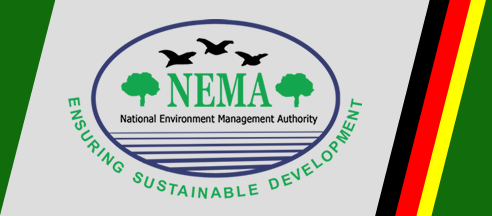Environmental education is a field of education that focuses on raising awareness and understanding of the environment and its various issues. It aims to provide individuals with the knowledge, skills, attitudes, and values necessary to become environmentally responsible citizens.
The primary goal of environmental education is to promote environmental literacy, which includes an understanding of ecological principles, environmental systems, and the interconnections between humans and their environment. It also seeks to foster a sense of personal and collective responsibility towards the environment, encouraging individuals to make informed decisions and take sustainable actions.
Environmental education can be delivered in various settings, including schools, universities, nature centers, museums, community organizations, and through online platforms. It typically involves a multidisciplinary approach, integrating concepts from science, social studies, geography, economics, and ethics. The curriculum may cover topics such as biodiversity, climate change, pollution, conservation, sustainable development, and environmental justice.
Key objectives of environmental education include:
- Increasing awareness: Environmental education aims to create awareness about environmental issues, challenges, and opportunities. It helps individuals understand the interconnectedness of ecosystems and the impacts of human activities on the environment.
- Building knowledge and skills: It provides individuals with the scientific knowledge, critical thinking skills, and problem-solving abilities necessary to address environmental problems effectively.
- Fostering attitudes and values: Environmental education promotes values such as empathy, respect, and responsibility towards the environment. It aims to develop a sense of stewardship and an understanding of the importance of sustainable practices.
- Encouraging participation: It seeks to engage individuals in active participation and decision-making processes related to environmental issues. It encourages collaboration, community involvement, and advocacy for sustainable practices and policies.
- Promoting sustainable lifestyles: Environmental education emphasizes the importance of individual actions in reducing environmental impact. It encourages individuals to adopt sustainable behaviors, such as energy conservation, waste reduction, responsible consumption, and environmentally friendly choices.
Environmental education plays a crucial role in addressing global environmental challenges such as climate change, deforestation, pollution, and loss of biodiversity. By promoting knowledge, awareness, and action, it empowers individuals to make informed decisions and contribute to a more sustainable and resilient future.
Environmental education in Uganda plays a crucial role in promoting sustainable development, conservation, and addressing environmental challenges. Here’s some information about environmental education in Uganda:
- National Environmental Policy: Uganda has a National Environment Policy that recognizes the importance of environmental education and public awareness. The policy emphasizes integrating environmental education into formal and non-formal education systems.
- Environmental Education in Schools: Environmental education is integrated into the national school curriculum in Uganda. It is taught as a standalone subject or as a cross-cutting theme in subjects like science, geography, and social studies. Students learn about environmental concepts, conservation, biodiversity, climate change, and sustainable practices.
- Environmental Clubs: Many schools in Uganda have environmental clubs that promote environmental education and awareness among students. These clubs organize activities such as tree planting, waste management campaigns, and awareness campaigns to engage students in hands-on environmental learning.
- Non-Governmental Organizations (NGOs): Various NGOs in Uganda actively promote environmental education. They conduct workshops, training programs, and awareness campaigns in schools and communities. Examples of NGOs in Uganda include NatureUganda, Uganda Wildlife Education Centre, and EcoAction Uganda.
- National Parks and Protected Areas: Uganda is known for its rich biodiversity and national parks. Some national parks, such as Queen Elizabeth National Park, organize educational programs for visitors, including school groups. These programs educate visitors about conservation, wildlife, and the importance of preserving ecosystems.
- Community-Based Environmental Initiatives: Local communities in Uganda are involved in environmental education and awareness activities. Community organizations, in collaboration with NGOs, conduct workshops, community dialogues, and cultural events to raise awareness about environmental issues and sustainable practices.
- Government Initiatives: The Ugandan government, through its Ministry of Water and Environment, implements initiatives to promote environmental education and awareness. These include developing environmental education materials, organizing conferences, and coordinating campaigns on specific environmental issues.
- Sustainable Development Goals (SDGs): Uganda, like other countries, is committed to achieving the SDGs. Environmental education is linked to several SDGs, such as Goal 4 (Quality Education), Goal 13 (Climate Action), Goal 14 (Life Below Water), and Goal 15 (Life on Land). The government emphasizes the integration of environmental education to achieve these goals.
- Challenges: Despite efforts in environmental education, challenges exist in Uganda, including limited resources, inadequate infrastructure, and the need for capacity building among teachers and educators. Addressing these challenges is essential for further strengthening environmental education in the country.
Overall, environmental education in Uganda is recognized as a vital component of sustainable development. Efforts are being made by the government, NGOs, and communities to integrate environmental education into the formal education system, raise awareness, and promote sustainable practices among students and the general public.





